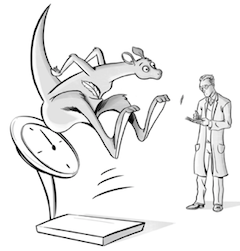
Sergey Kucheryavskiy
Associate Professor at Section of Chemical Engineering

In most of the cases, an experiment can be considered as a systematic procedure that allows to estimate an influence of various factors and/or conditions on some effect (or several effects). For example, if you want to make the best ever coffee latte, you need to carry out several experiments where factors will be: amount of sugar, amount of milk, and, say, its temperature, and the effects will be the taste of the final product and its color.
Of course, you can also try different coffee beans, grind fineness and so on. So, even for this simple example, a proper organization of the experiments is crucial and can be quite challenging. For the real applications, besides controllable factors and conditions, you will also have uncontrollable ones.
This course will show how to manage this and similar situations, how to plan your experiments properly, and how to interpret their results. How to find a combination of factors that gives you the best product or the most desirable effect and most optimal values for the factors.
Basic knowledge of math (statistics, geometry, linear algebra) and experience in R programming as well as general computer skills.

Associate Professor at Section of Chemical Engineering